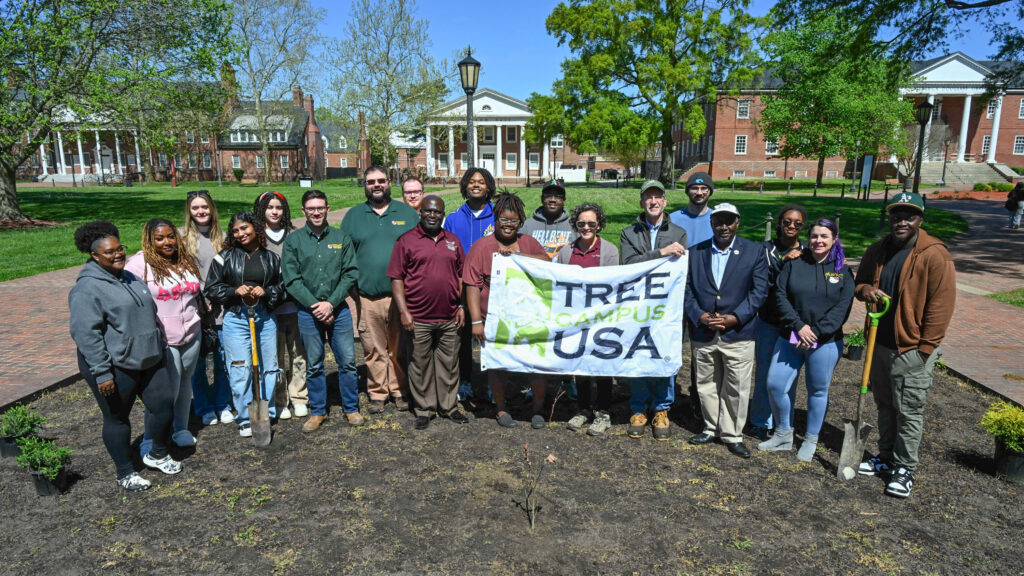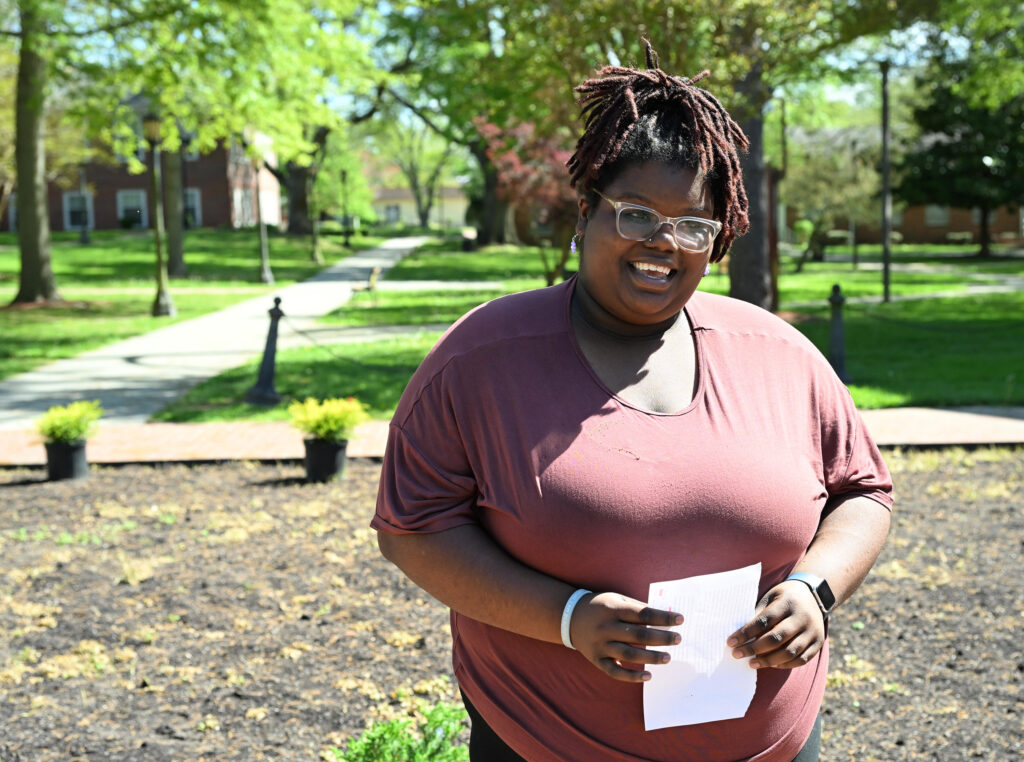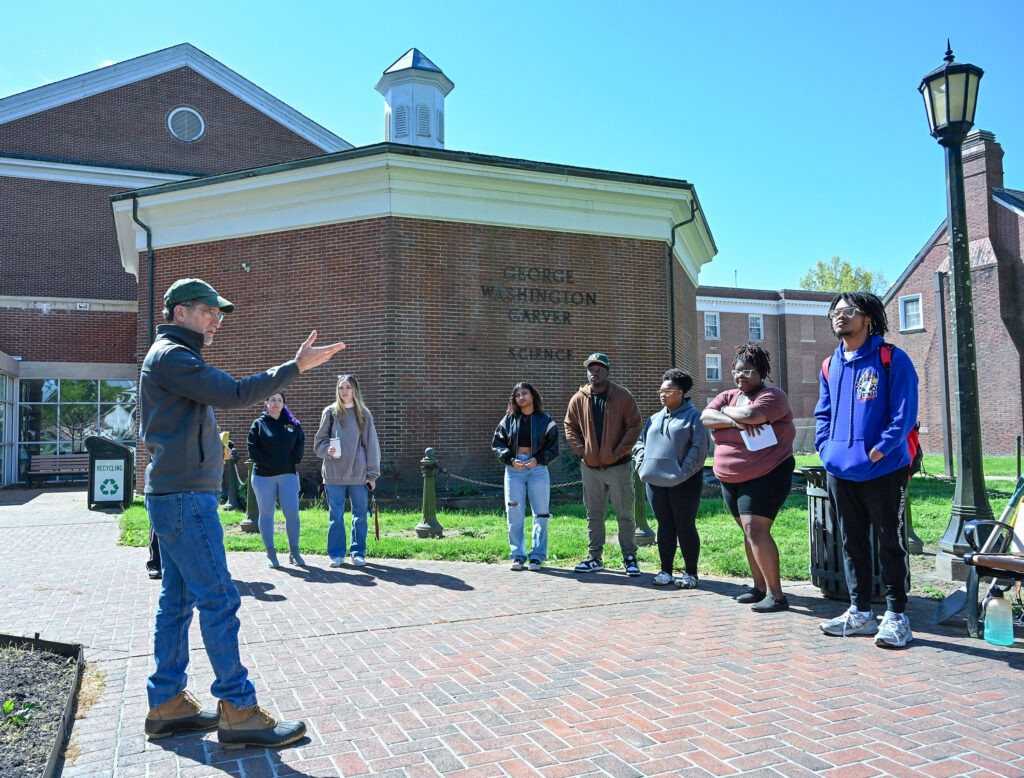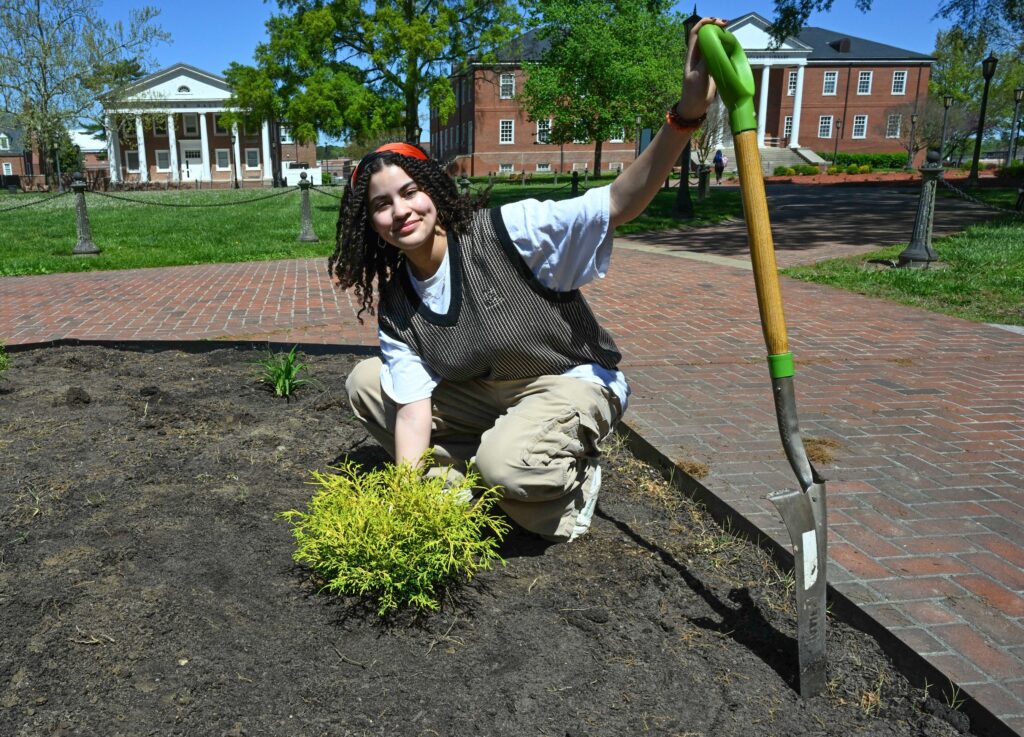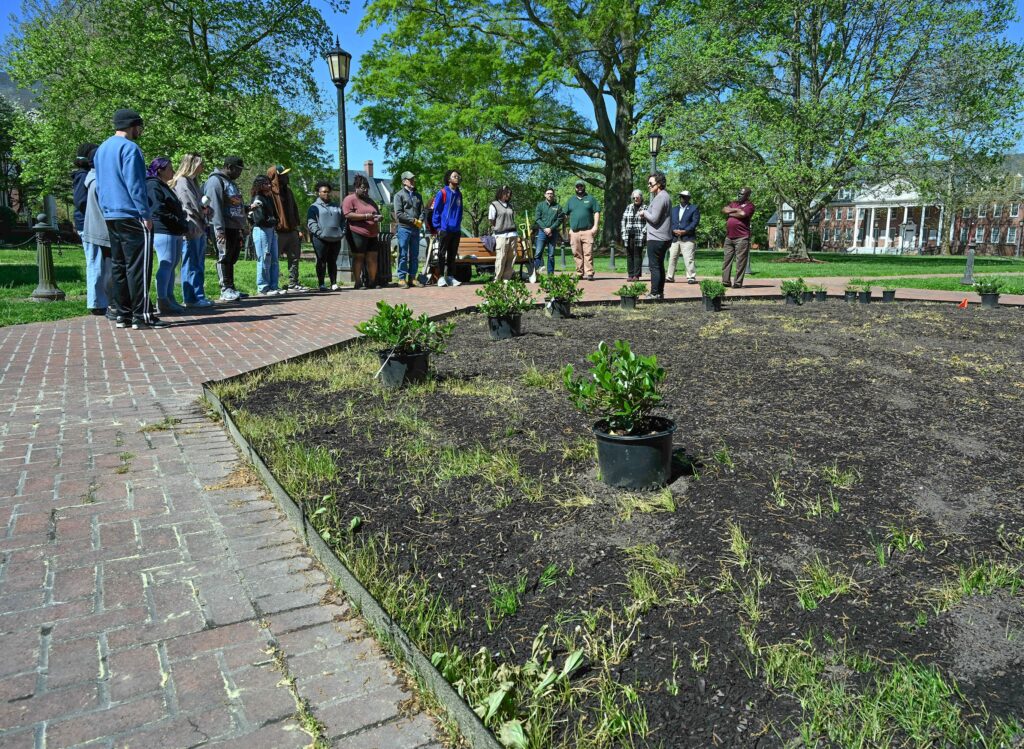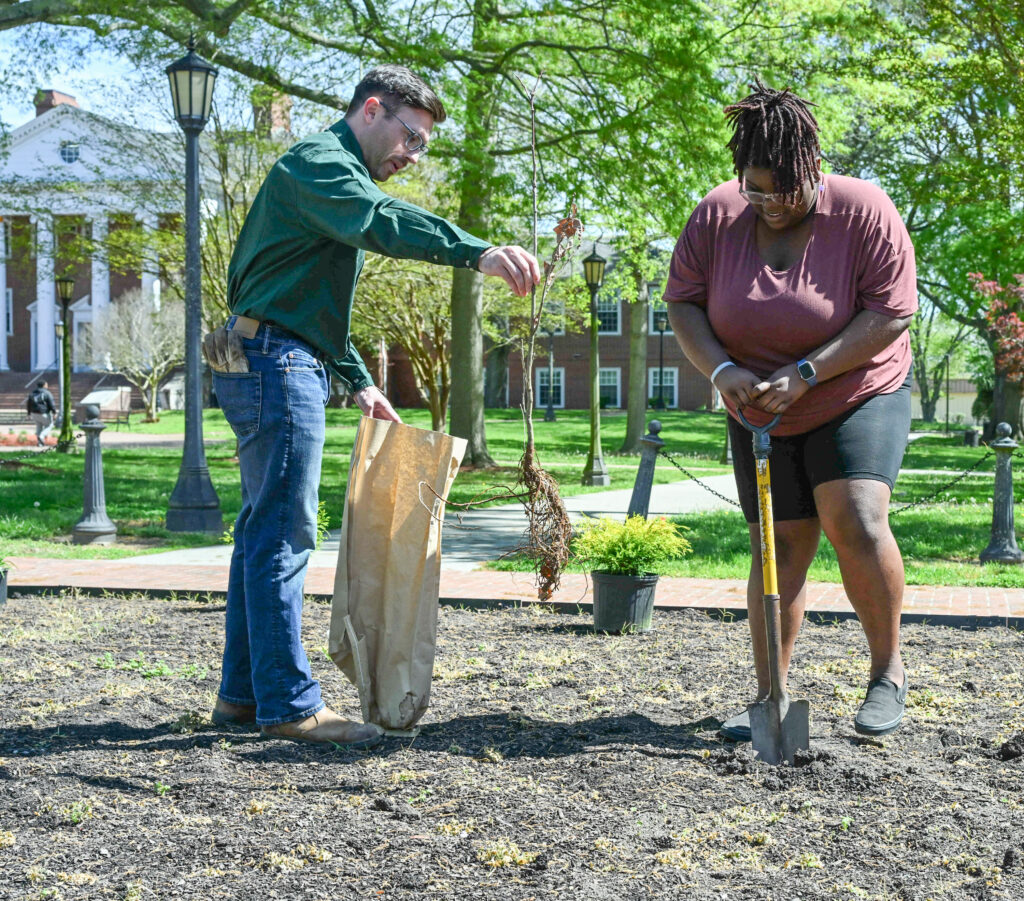
The University of Maryland Eastern Shore added a piece of horticultural history to its 1,100-acre campus April 22 to mark Earth Day. A 2-year-old seedling cloned from the Wye Oak tree that majestically stood for 400 years in Wye Mills, Maryland, took a place of honor in front of George Washington Carver Hall. The tree planting was also part of UMES’ designation by the Arbor Day Foundation as a Tree Campus USA.
“This is the third year that UMES has planted a tree for the Tree Campus certification, so I wanted to do something different by getting the Wye Oak,” said Matthew Hurd, regional forester for the Maryland Department of Natural Resources Forest Service. “We are so glad the university supports the program and are especially pleased by the student involvement.”
Student members of UMES’ new Environmental Sciences Association led a brief ceremony marking the occasion and the beginning of Earth Week activities.
“We’re thankful for this service-learning experience and further step toward making our campus greener,” said Jasmine Pinchinat, (at right) a UMES senior majoring in environmental science with a marine biology concentration and president of the association. “Trees increase oxygen in our atmosphere, reduce carbon dioxide levels, filter air pollutants and provide habitat for wildlife. Planting this tree adds to the native trees on campus, paving the way for continued environmental stewardship and leaving a legacy.”
“Hopefully, the trees that have been planted on campus each year will be here for 50 years like these Willow Oak trees behind us,” said Hurd, who helps the state manage 97,000 acres of forestry on the Eastern Shore. Colleges like UMES, he said, with a demonstrated commitment to maintaining an inventory of the trees on campus, taking measures to provide tree care and continuing to plant trees can take steps to be certified in the Tree Campus program.
UMES is not only committed to a greener campus, but to the “next generation of foresters,” said Dr. Stephan Tubene, acting chair of UMES’ Department of Agricultural, Food and Resource Sciences. The university was awarded $2 million in 2023 as part of a $35 million U.S. Department of Agriculture Forest Service Urban and Community Forestry Grant to a coalition of 1890 land-grant institutions. Dr. Stephanie Stotts, an associate professor for forest ecology, is leading the grant activities at UMES.
“Research shows that 70% of underserved urban residents do not have access to natural areas. Therefore, without urban forests, many urban residents will not receive the very real benefits that trees provide,” Stotts said. “Urban forestry provides a solution to an environmental justice problem, access to the health benefits provided by trees.”
Jarrett Hoskins (above left) of Maryland Forest Service’s new 5 Million Tree Planting Program was on site to connect with the student group and campus community.
“It’s good to see we all have the same goal of improving the Eastern Shore habitat and climate resiliency. Maryland has laws in place for replacement plantings, but the Tree Campus plantings are additional and help us work toward the 5 million trees to be planted by 2031 under the Tree Solutions Now Act passed in 2021. The focus is on underserved communities with 10% to be planted there.”
Organizations on the Eastern Shore interested in planting trees can reach out to the Maryland Department of Natural Resources Forest Service at www.dnr.maryland.gov or email Jarrett.hoskins@maryland.gov. For information on UMES’ Urban Forestry Program, contact Stotts at snstotts@umes.edu.
Gail Stephens, agricultural communications, University of Maryland Eastern Shore, School of Agricultural and Natural Sciences, UMES Extension, gcstephens@umes.edu, 410-621-3850.
Photos by Todd Dudek, agricultural communications, University of Maryland Eastern Shore, School of Agricultural and Natural Sciences, UMES Extension, tdudek@umes.edu.
Clockwise below:
UMES student members of the Environmental Science Association are pictured with Maryland Department of Natural Resources Forest Service representatives, (center, from left in green) Jarrett Hoskins (5 Million Tree Planting Program specialist) and Matthew Hurd (regional forester), along with UMES representatives (center, from left) Dr. Stephan Tubene (acting chair, Department of Agriculture, Food and Resource Sciences), Jasmine Pinchinat (senior Environmental Science major, Environmental Science Association president), Dr. Stephanie Stotts (associate professor for forest ecology), Dr. Jonathan Cumming (chair, Department of Natural Sciences) and Dr. Moses T. Kairo (dean, School of Agricultural and Natural Sciences). UMES students, from left, are: Daylah McCullough, Sanaa Tate, Megan Gandy, Nina Clovis, Sarah Rawlinson, Chris Robinson, Caleb Clark, Tyjuan Green, Brock Payne, Cheyenne Murdaugh, Renee Thompson and Glen Collins.
Jasmine Pinchinat, president of UMES’ Environmental Science Association, welcomes guests Monday, April 22, 2024 at a ceremonial tree planting to kick-off Earth Week activities, including Arbor Day on Friday, April 26, 2024.
Dr. Stephanie Stotts, associate professor for forest ecology, conducts an impromptu Q&A on “Is this the right tree for the right place?”
Sarah Rawlinson, a UMES freshman environmental science major with a chemistry concentration and Environmental Science Association member, plants locally donated shrubs to round out the plantings around the Wye Oak seedling.
Dr. Jonathan Cumming, chair of UMES’ Department of Natural Sciences, talks about the Wye Oak, Maryland’s oldest and largest white oak before its demise in 2002 during a storm, and the large old trees on UMES’ campus.

